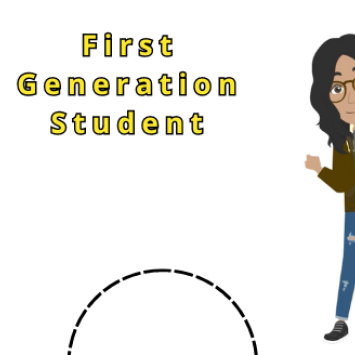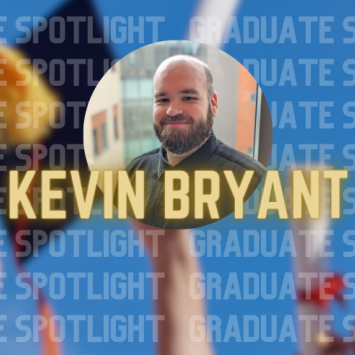The life of a first-generation student is a triumphant one but sometimes it can be filled with failure.
In my second semester of freshman year, I finally decided on my major, Nursing. As many of you may know, the nursing program has a lot of prerequisites that have to be fulfilled before applying. So, to fulfill those prerequisites, I decided to do them ALL in one semester. You guessed correctly. It did not go well! I did not meet the standard set by the UK College of Nursing and, therefore, was not accepted the first time I applied. But guess what? I tried again the following year and was accepted. I felt unstoppable! Until… I had to meet some medical prerequisites and tested positive for tuberculosis. Though testing positive for tuberculosis wasn’t necessarily under my control, to me, it was equivalent to a failure. Now, I'm in nursing school. I fail multiple times a day. (Sigh… I’ll leave how up to your imagination.) Yes, I’m being hyperbolic. But, what’s nursing school without failure? While I’m failing, I’m succeeding.
The life of a first-generation student is a triumphant one but sometimes I’m not sure if I’m cut out for this. AKA self-doubt.
After being rejected the first time I applied to nursing school, I wondered if I was smart enough, hard-working enough, compassionate enough, resilient enough to actually “do” college. When applying my second time, I believed that I would get in… but a nagging thought wouldn’t leave me. After failing so many times, did I deserve to be given a seat? Even if I did get into nursing school, would I be cut out to graduate? And even if I did deserve it, or if I did graduate, I still had the lingering doubt that I could never be, what I believe to be, a “good” nurse.
The life of a first-generation student is a triumphant one, but sometimes it’s burdensome.
I grew up in California. It’s competitive there and for some reason, I felt the need to compete. To have a competitive college application, I took Advanced Placement (AP) classes in high school. My AP Chemistry teacher said something to my class that I can’t seem to forget. She said, “Be proud of yourselves. You are the cream of the crop.” At that moment, I was proud. I had a great GPA, was involved in a lot of extracurriculars, had volunteer hours, and was doing all the things I was supposed to do for success. Well, that pride did not last long. AP Chemistry was hard. I understood nothing. I barely passed but I survived to tell the story. I tell you this because first-generation students have this particular burden to be the “cream of the crop”. My grandparents came from Mexico and my parents were unable to go to college due to their circumstances.
Now, my generation is supposed to go to college. I live in a “creamy” country with “creamy” circumstances. I also have this “creamy” opportunity to go to university. I am very blessed but there is this undeniable, hidden pressure. My older family looks down on me as if my success is a reflection of what they’ve achieved. My younger family members look up to me as if my success is a symbol of what they could achieve. But what if I fail? What if I am not the “cream of the crop?” What if I never was?
The life of a first-generation student is a triumphant one, indeed, it truly is triumphant.
Sure, being a first-generation college student comes with many hardships; but regardless of educational status, life comes with hardships. It’s like a rite of passage to triumph. Without hardships, there is no triumph. How can there be a triumph without the risk of defeat? How can someone truly experience triumph without first being defeated?
The past few passages may have felt a little bit…despondent and, for some time, they felt that way too. Now, as a third-year student, these pressure points have turned from a hindrance to an opportunity for edification.
Is my life filled with various failures? Of course. And sometimes failure can be embarrassing and discouraging. But, resilience is developed through endurance.
Self-doubt and pride fluctuate. Neither is beneficial. But every day, in one way or another, I’m either encouraged or humbled healthily. Outwardly, it seems that success follows failure; but in a way, they are simultaneous.
So as a first-generation student, I can safely say that college is a great place to fail many times, succeed many times, learn many things and focus on today.






